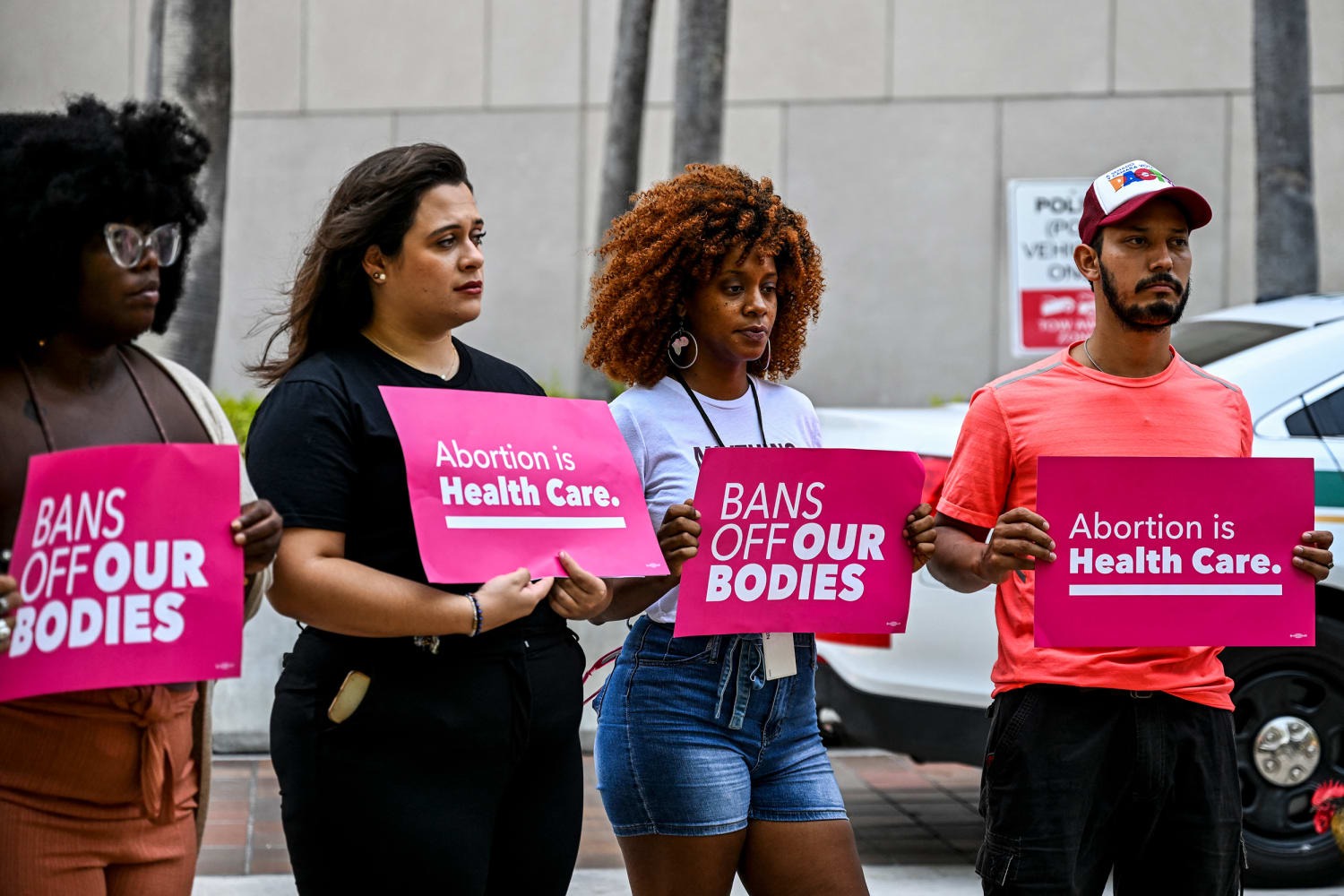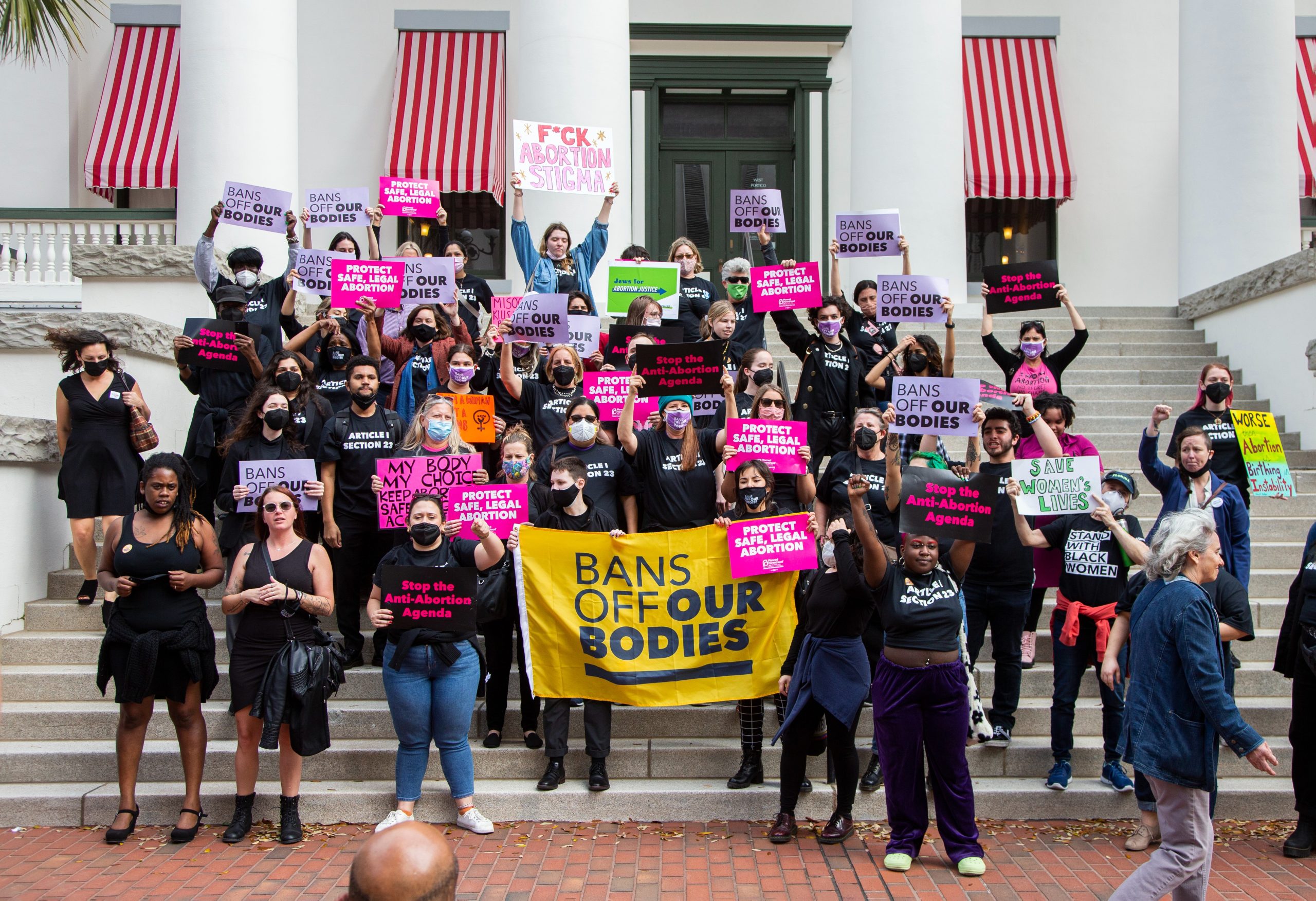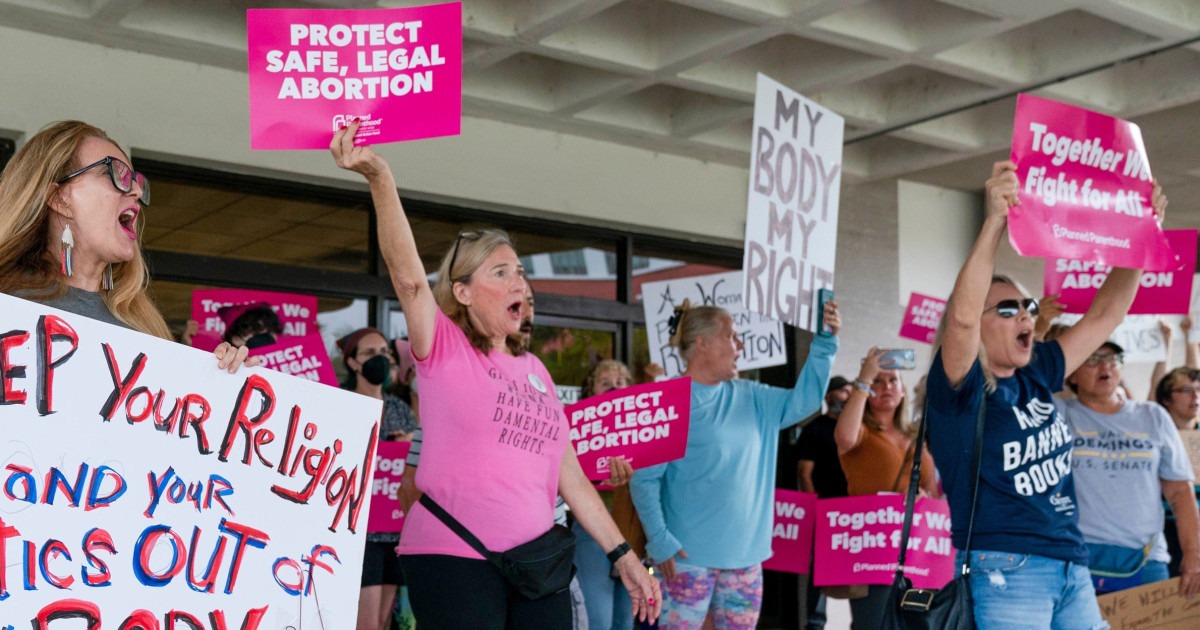Florida’s recent legislative move to impose a ban on most abortions after six weeks has sparked discussion and concern. This decision, set to take effect in early May following a state Supreme Court ruling, targets a period when many women may not yet realize they are pregnant.
This law is expected to have a profound impact, as data indicates the majority of abortions in Florida occur after the six-week mark. However, about 41% of nearly 459,000 abortions performed in the state from 2018 to 2023 were at or before this stage, highlighting the relevance of early abortion access.

Florida Citizens On Abortion Ban (Credits: NBC News)
Isaac Maddow-Zimet of the Guttmacher Institute attributes the proportion of early abortions to the increased availability of medication abortion and efforts by clinics to expedite patient intake.
Medication abortions, constituting nearly 60% of all procedures in Florida as of 2021, utilize mifepristone and misoprostol to terminate pregnancies. This method has been under scrutiny, with ongoing legal challenges at the national level.
As a sequel to tightening restrictions, abortion providers, including Planned Parenthood of Southwest and Central Florida, have been adapting their operational strategies.
Initiatives include extending clinic hours and streamlining patient processing to accommodate the new legal timeframe. Yet, the six-week limit presents significant logistical challenges, particularly in managing appointment demands.

Proposed Abortion Ban By Florida Citizens (Credits: Politico)
The ability to detect pregnancies early plays a critical role in this scenario, with factors such as regular menstrual cycles and socio-economic conditions influencing women’s awareness of their pregnancy status.
Accurate Results Can Extend the Uncertainty for those Seeking Abortion Services
Melissa Grant of Carafem, an abortion provider with a clinic in Atlanta where a similar six-week ban exists, outlines the compounded challenges patients face. These include the urgency of decision-making, financial constraints, and logistical arrangements for childcare and transportation.
As pregnancy is typically counted from the last menstrual period, a missed period can already place a woman at around four weeks of pregnancy, narrowing the window for legal abortion access under the new law.
Despite the availability of early-detection pregnancy tests, the timing for accurate results can extend the uncertainty for those seeking abortion services. The law’s implications extend beyond state borders, affecting patient flows to and from neighboring states with different restrictions.
With Florida no longer a viable option for many seeking later abortions, the landscape of reproductive health access in the Southeastern U.S. is undergoing major changes, illustrating the complex interplay between legislative action, healthcare provision, and individual rights and needs.
























